- Home
- entertainment
- news
- Taylor Swift's 'Evermore' isn't as good as 'Folklore,' but it's still better than what everyone else is doing
Taylor Swift's 'Evermore' isn't as good as 'Folklore,' but it's still better than what everyone else is doing
Callie Ahlgrim,Courteney Larocca

- Taylor Swift released her ninth studio album, "Evermore," on Friday.
- We listened straight through the 15-song tracklist and wrote down our first impressions of each one.
- Overall, we thought it was yet another shining example of Swift's songwriting prowess, though it didn't quite measure up to its older sister, "Folklore."
- The best tracks on the album are "Willow," "Gold Rush," "Tolerate It," "No Body, No Crime," and "Ivy," while "Cowboy Like Me" was ruled as a skip.
Taylor Swift released her ninth studio album, "Evermore," on Friday.
Just like with "Folklore" in July, Swift surprised fans by announcing its release just one day in advance.
"To put it plainly, we just couldn't stop writing songs," Swift explained on social media. "To try and put it more poetically, it feels like we were standing on the edge of the folklorian woods and had a choice: to turn and go back or to travel further into the forest of this music. We chose to wander deeper in."
To create the "imaginary/not imaginary tales" of "Evermore," the Grammy-winning singer-songwriter reunited with "Folklore" producers Aaron Dessner and Jack Antonoff, as well as cowriters William Bowery (which is the pseudonym used by her boyfriend, Joe Alwyn) and Justin Vernon (also known as Bon Iver).
Other featured artists include the sister trio HAIM, Swift's longtime friends, and Dessner's band The National, which also includes Matt Berninger, Scott Devendorf, and Bryan Devendorf.
Insider's music team (reporter Callie Ahlgrim and celebrity and music editor Courteney Larocca) listened to the new album on our own, jotting down our initial thoughts track by track.
Overall, we thought it was a lovely companion to "Folklore," though it didn't quite measure up to its older sister. The album started strong with most of its best songs at the top, but it began to fade halfway through and lost some emotional ground.
Here is what we thought of each song on "Evermore" upon first listen. (Skip to the end to see the only songs worth listening to and the album's final score.)
"Willow" makes a lot of sense as the album opener.
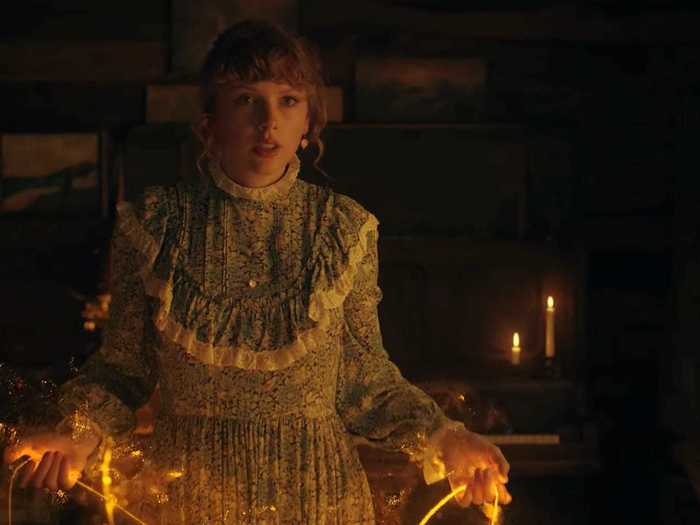
Ahlgrim: "Willow" is bright and fluid, so it could exist within the "Folklore" cinematic universe — but it introduces a witchy sort of vibe that wouldn't quite fit in the original tracklist. It's a gentle, yet deliberate guide to this thickened section of the woods.
I'm in love with the chorus of this song, delivered with such casual extremity. I love these lyrics in particular: "I'm begging for you to take my hand / Wreck my plans / That's my man."
I will always admire how Swift can take a deeply tangled human experience — here, the web of desire and admiration and possessiveness, to the point where you'd let that person ruin you — and put it down on paper as if it's the simplest thing to explain.
Larocca: Swift has described "Evermore" as the product of standing on the edge of the folklorian forest, and deciding to venture further in as opposed to turn back to safety — and that comes across immediately on "Willow."
It sounds like she's sobbed by "The Lakes," gotten her fill of auroras and sad prose, and let the wisteria grow over her feet as she escaped into dreamland, waking to find herself at the base of a willow tree with her beloved.
But it also slots effortlessly into the grander Taylor Swift Discographic Universe (TSDU).
Refrains of "Wherever you stray, I follow" and "I'm begging for you to take my hand" hark back to older lyrics like "Nothing safe is worth the drive / And I will follow you, follow you home" ("Treacherous") and "You take my hand and drag me head first" ("Fearless").
"Champagne Problems" has nostalgic flourishes, recalling both "Speak Now" and "Red."

Ahlgrim: This tragic tale of "longtime college sweethearts" who had "very different plans for the same night" somehow reminds me of Rory and Logan from "Gilmore Girls," whom I rooted for until the very end. (I have no evidence that Swift ever watched the show, but she does admit she's been "stuck in the past" with her TV-watching habits, so I'm not ruling it out.)
Of course, Swift never got the chance to have a college sweetheart, but I feel like I see shades of her past lives in these anti-romantic details.
The third verse, especially the line "November flushed and your flannel cured," has huge "Red" energy. For that reason alone, this song is a winner.
On a more personal note, I'm very into Swift calling out trying-to-be-cool college students for having tapestries in their dorm rooms (guilty as charged).
Larocca: "Champagne Problems" is the second cousin to "Speak Now," and I'd say I won't be elaborating, but it actually is my job to speak further on that.
Whereas on "Speak Now," Swift narrated a tale of crashing a wedding to confess her love for the groom, on "Champagne Problems," she's the would-be bride admitting that the wedding should never happen.
But the most interesting TSDU parallel here might be the piano intro that sounds an awful lot like the one on "New Year's Day." It's as if Swift's sonically telling us her beloved did become the stranger whose laugh she could recognize anywhere — or rather, she elected to become that stranger herself.
"You won't remember all my champagne problems" is also an alluring inverse of "Hold onto the memories, they will hold onto you."
"Gold Rush" is both a vocal and lyrical triumph.
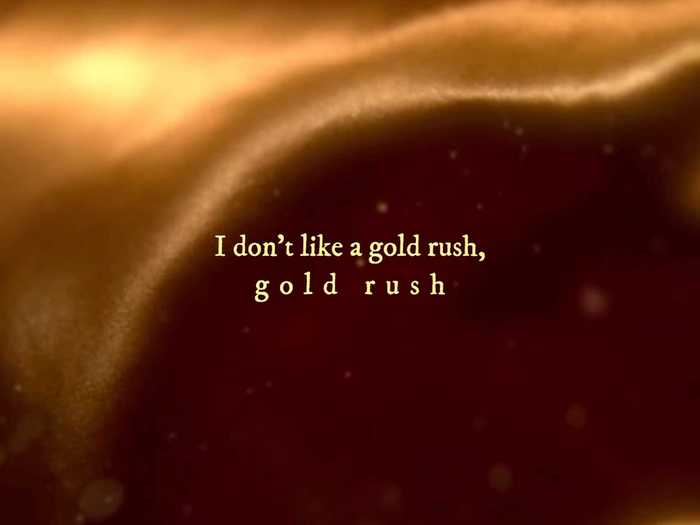
Ahlgrim: The poet in me is deeply sated with this rhyme scheme and its bite-sized phrases, which feel obvious but, put together, are quietly genius ("gold rush," "red flush," "your touch," "quick brush," "rose blush," "bone crush").
In fact, every single line of "Gold Rush" makes my nerves feel like live wires — and Swift's nimble delivery throughout the song really amplifies the electricity.
I am a noted daydreamer, so I feel both seen and targeted by these shimmery fantasies of domestic life with a beautiful boy. "I see me padding across your wooden floors / With my Eagles t-shirt hanging from the door" might be an actual entry from my journal.
Plus, "Everybody wants you / Everybody wonders what it would be like to love you" is a clear callback to "Lover" ("I'm highly suspicious that everyone who sees you wants you") — a song that, fittingly, I have described as a "lyrical masterpiece."
Larocca: Ahead of the album release, Swift said she and her collaborators got more experimental with their production on "Evermore," and "Gold Rush" feels like we've left the lakes of "Folklore," and stumbled upon a small commune in the forest clearing, inhabited by bubbly nymphs and stunning sorceresses.
There's a bustling energy that ripples through the track in a way unlike anything Swift has ever produced, elevated exponentially by the best vocal delivery of her career thus far.
With the way she lithely skits and scatters across this glittery dreamscape, you could tell me that instead of Taylor Swift, she's six spry sprites guiding me through a magical fairytale land, and I'd believe you.
"'Tis the Damn Season" takes a small, local story and turns it into a potent meditation on homecoming and regret.
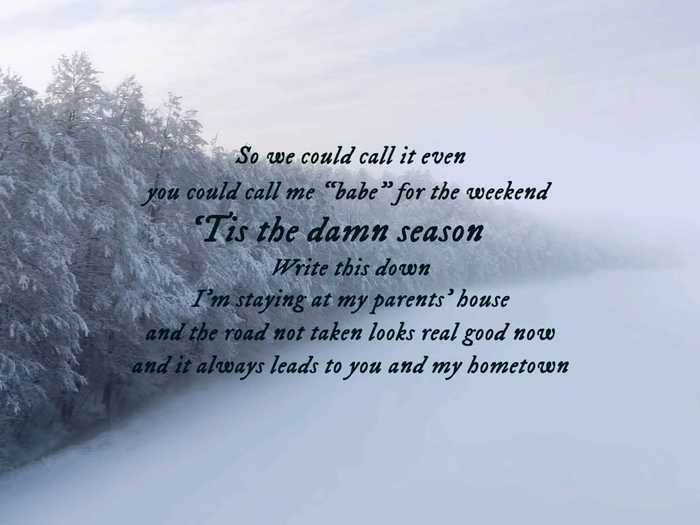
Ahlgrim: I dig the thicker production that Swift has favored so far. On "Folklore," this intro's riff would've been acoustic. Going with an electric guitar immediately gives the song a less rustic, slightly edgier sound; it reminds me of Mumford & Sons' 2015 album "Wilder Mind."
As Swift gets into the chorus, her melodies strongly recall her first two albums, "Taylor Swift" and "Fearless."
Naturally, this doesn't seem like an accident. "'Tis the Damn Season" is littered with wistful what-ifs, holiday-season reminiscence, and hometown yearnings — so the nostalgic flourishes in her voice enhance the themes of the story.
This song literally sounds like reaching for warmth in a lonely, wintery landscape.
Larocca: Shout-out to every dude from high school who has DMed me seven years after graduation to ask if I still come home for the holidays. (Why is that a thing? And, more specifically, why does Swift know it's a thing? Do people from her class try to hit on her over Facebook Messenger? I need answers.)
Anyway, this song is yet another shining example of Swift's ability to pinpoint an experience so specific yet universal that you'd never think to write a song about it until you hear her take on it.
And aside from outright saying she's "stayin' at my parents' house," there's a thematic homecoming here, too. She's looking back on the small town that disappeared in her rearview mirror on "White Horse" or revisiting the ex from "Tim McGraw" who she still hopes thinks about her, even now.
I know that this shouldn't be surprising at this point, but it's uncanny how effortlessly she weaves in new patterns, details, and stitches into the tapestry of her work, while maintaining the bigger picture — it just becomes a more nuanced, intricate portrait with each release.
"Tolerate It" is the most powerful and devastating song on the album.
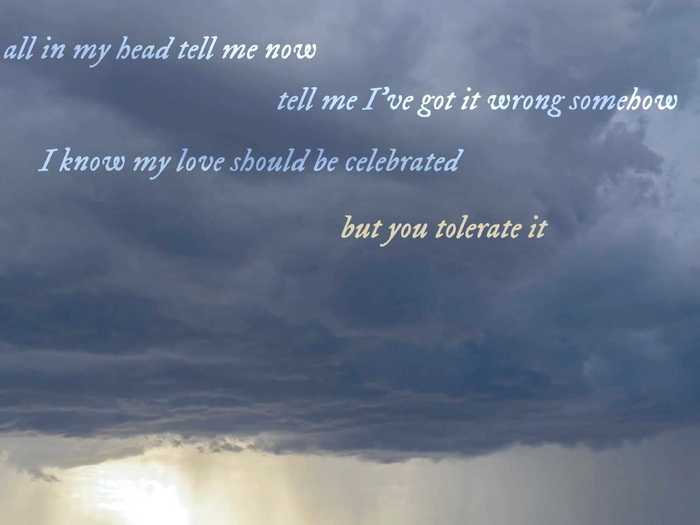
Ahlgrim: "Tolerate It" is an exquisitely painful portrait of lopsided affection — an effigy of a girl whose hunger for validation is so consuming, it masquerades as real love.
This is some of Swift's finest songwriting to date. She blurs the line between innocence and anguish so artfully, you may not even realize why these lyrics hurt. One of the simplest lines, "I notice everything you do or don't do," literally made me weep.
And I don't think I'll be alone in my reaction. For many listeners, particularly young women, the sting of this song will feel very localized. I feel like I can see these words in three dimensions, as clearly as I would a stage play.
The bridge, which falls into the final chorus, is especially poignant. You can feel the pressure building, like the narrator is summoning all the strength she has left for one final stand: "You assume I'm fine, but what would you do if I break free and leave us in ruins? Took this dagger in me and removed it? Gain the weight of you then lose it? Believe me, I could do it."
Larocca: There are plenty of mythologies and thematic reoccurrences present in the TSDU, and track five being a poignant, vulnerable moment on each album is one of the most obvious (and beloved).
"Tolerate It" deserves this coveted position, as evidenced by the scream-cry I had to it this morning. But it's also a continuation of another top-tier track five: this is what happened to the girl from "Dear John" if she didn't take John's matches before fire could catch her.
"Tolerate It" is an intimate look at what happens when you're watching your abusive partner continue to play their dark, twisted games, and you're waiting by the door like you're just a kid — and can't quite reach the knob.
Instead of taking your best colors to go shine like fireworks, you're using them to thanklessly paint their portrait instead of your own. But, at your core, you know you deserve more.
"No Body, No Crime," featuring HAIM, is an iconic tribute to the scorned women of country music.
Ahlgrim: I don't consider myself a big fan of country music, though there are certain flavors I do enjoy — particularly those of the "scorned woman vs. dirtbag man" variety, à la "Before He Cheats" by Carrie Underwood or Swift's own "Picture to Burn."
I also love how the genre tends to foster plot-driven storytelling, à la Swift's ode to young love and accountability, "Betty."
So obviously, "No Body, No Crime" is everything I could ever want from a true revival of Swift's country-darling roots. As soon as I heard those sirens and HAIM sister harmonies, I knew I'd be treated to a full-chested revenge bop.
Este's murder gracefully unfolds in a way that feels cinematic, but never forced. I love a dramatic twist in the bridge, I love the way Swift withholds the word "died" in the final chorus — letting us fill in the blanks is a brilliant parallel of her character's presumed guilt — and I love a happy ending.
Larocca: Swift has held love for the Chicks since her earliest days, but their influence has never felt stronger than on "No Body, No Crime" — and they literally appeared on one of her songs two albums ago.
This HAIM-assisted track is what happens when "Goodbye Earl" meets Carrie Underwood's "Before He Cheats." I'm a firm believer that country music is at its best when it's centered on a mad woman seeking revenge on some scumbag. Even better if that guy dies.
I'm elated that Swift agrees — and that she brilliantly included Danielle Haim speaking an alibi after the line, "Good thing Este's sister's gonna swear she was with me."
"Happiness," the final song written for the album, evokes the reflective energy of a closing track.

Ahlgrim: This song sounds very human, for lack of a better word. Swift's vocals are intensely tender, and the delicate instrumentation compliments the stream-of-consciousness vibe.
This song is ostensibly about divorce. But at its core, this song is about the yin and yang of disappointment and growth.
Swift watches the person she loves most become a stranger, and tries to find a way to be OK with that: "I pulled your body into mine every goddamn night, now I get fake niceties," she sings. "No one teaches you what to do when a good man hurts you, and you know you hurt him, too."
This almost feels like the long-lost triplet of "Peace" and "Hoax" — particularly "Peace," which shares the distinction of being a desperately sad song with a deceptively hopeful title.
Larocca: On "Folklore," there was "Peace," a song about what happens if you can't provide peace to your lover. Swift revisits this juxtaposition on "Happiness," a song that grapples with understanding happiness is out there, somewhere, but is unreachable in your current state.
"Happiness" evokes the lull of a lullaby, or a reflective closing track. It feels like we're winding down, which is odd considering this is the halfway mark.
The effect is an album divided into two distinct parts, which could be an issue if both halves aren't equally enticing.
And, spoiler alert, they're not.
"Dorothea" is a sweet serenade, addressed to the narrator of "'Tis the Damn Season."
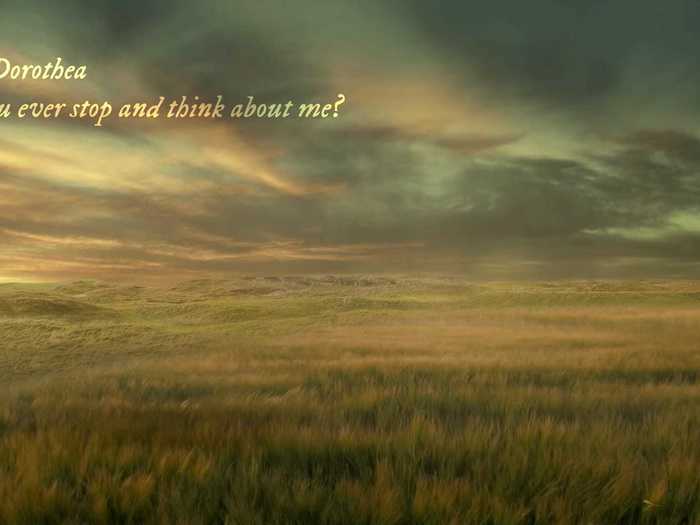
Ahlgrim: Dorothea is the new Betty. Her perspective is explored earlier in the tracklist with "'Tis the Damn Season," as in "Folklore" with "Cardigan."
Now, we get her high-school sweetheart's side of the story, in a song that's addressed directly to her — although, unlike James, this sweetheart goes unnamed. Maybe Dorothea is actually gay this time?
At any rate, this song is super pretty. The instrumentation is warm and idyllic, and I love how Swift sounds flushed and bright-eyed when she sings, "Dorotheeeeeeah."
Larocca: This is me begging Taylor Swift to stop saying her songs about women are from "the male perspective."
Taylor, if you see this, please do not ever say the narrator of "Dorothea" is a man. Feel free to confirm it's about lesbians, though.
"Coney Island," featuring The National, is a beautiful duet that explores loneliness and regret.
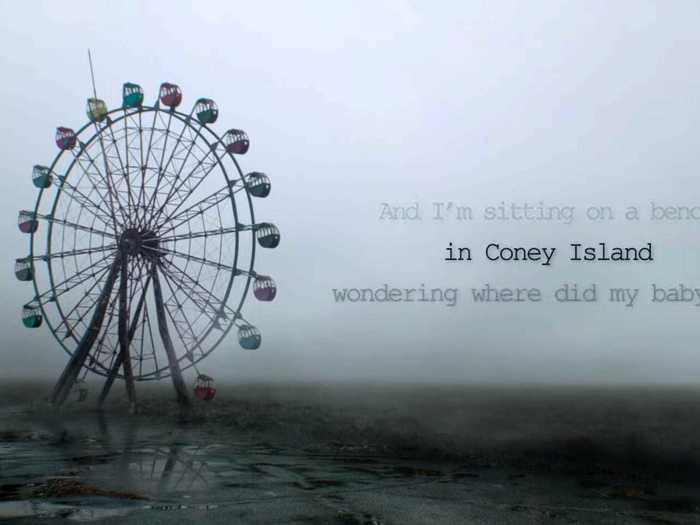
Ahlgrim: As with "Exile," this immediately emerges as one of Swift's most successful duets ever. Her voice melts into Matt Berninger's famous baritone without disappearing, like a whipped layer of buttercream icing on a warm, dense cake.
But my favorite part of "Coney Island," by far, is the stanza that calls back to "August" and its beloved "meet me behind the mall" lyric.
"'Cause we were like the mall before the internet / It was the one place to be / The mischief, the gift-wrapped suburban dreams," Swift sings before Berninger returns to harmonize: "Sorry for not winning you an arcade ring."
That last line really hurts, but I can't fully explain why. All of a sudden, I really need someone to win me an arcade ring in order to prove their devotion.
Larocca: Swift has been listening to Maggie Rogers, I see. But instead of the glacial plains of Alaska, she's hopped on the Brooklyn-bound Q train.
And whether intentional or not, "If I can't relate to you anymore / Then who am I related to?" is an extension of "Mirrorball" and the overarching theme of her "Folklore" eras. It begs the question: Who is Swift when her songs stop being about her and her reliability? What happens if she gets off the tightrope, and stops shining just for you?
"Ivy" is so bright and intimate that it feels alive.
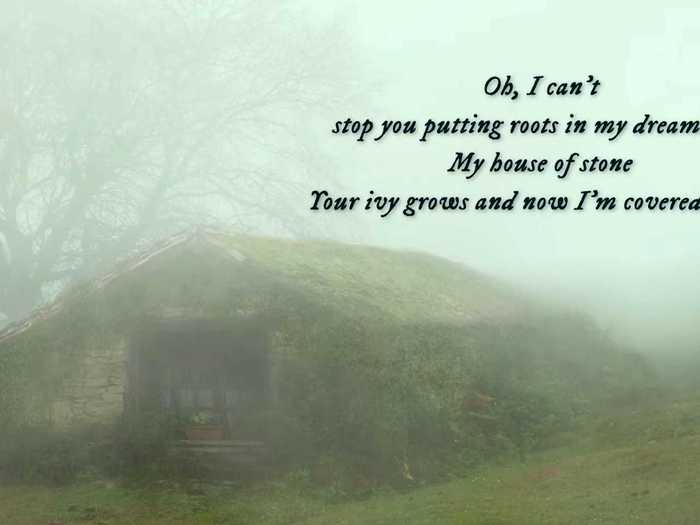
Ahlgrim: I have a feeling this will become a sneaky favorite. "Ivy" is profoundly listenable and delightfully cryptic; it reminds me of a fairytale that glistens with nymphs and meadows, while a sinister plot lurks in the underbrush.
On its face, "Ivy" is a member of the album's "anthology of marriage gone bad," telling the story of a woman who's falling in love without her husband. But Swift knits whimsy and intimacy into this would-be story of traditional failure.
In the third verse, for example, the song's narrator notices "clover blooms" and the "crescent moon" — fairly ordinary images that, in Swift's hands, breathe life and charm into the scenery. She also drinks her husband's wine while she waits for him to discover her infidelity, a deliciously nonchalant foil to her anxiety.
And, lest we overlook the enchanting chorus, "I can't stop you putting roots in my dreamland" is one of my favorite lines in the entire album.
Larocca: Oh goddamn, I love the way she sings this! With her elastic vocals and tangible sincerity, Swift sweeps her listener up in the story, just as easily as her character gets swept up in a forbidden romance.
Similar to "August" on her last album, I'm enthralled with this exploration of another love triangle corner, and all the caverns of vivid emotion that hide out there.
I believe her every word, and now I'm covered in ivy, too.
"Cowboy Like Me" is an easily forgettable song.
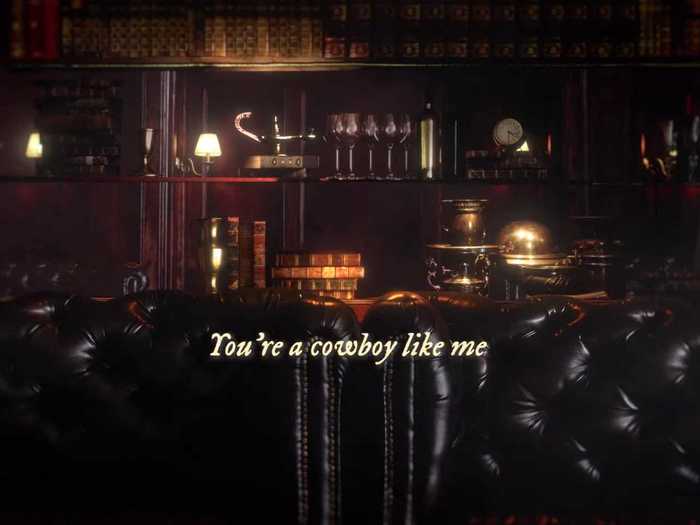
Ahlgrim: I mean, this is pleasant, but it's not particularly engaging. It's also too long; before I'm even halfway through, I'm getting bored.
I could see this being a fine addition to a mellow study playlist or something, but in terms of this tracklist, I could've done without it.
Larocca: In all honesty, this one should've been left off the album.
At four minutes and 35 seconds, you'd think it would have more to say, but I'm left wondering why Swift failed to bring the storytelling to a country-inspired ballad on a storytelling-heavy project.
"Long Story Short" is the closest Swift gets to revisiting her pop star persona.
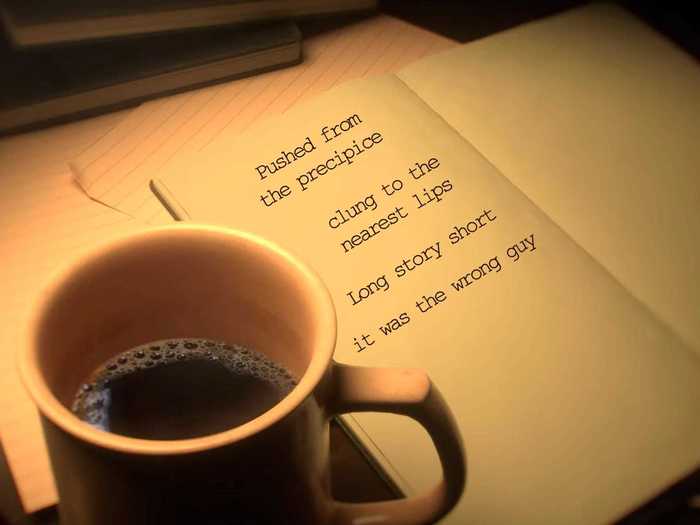
Ahlgrim: This is what would happen if "1989"-era Swift covered a "Folklore" song.
"Long Story Short" is poppier and glossier than its woodland companions — and it feels like a throwback Swift song in more ways than one. Conceptually, it retreads "Reputation" ground, with Swift brushing off her fallen-angel wounds so she can savor true love.
It did sort of come out of the blue, but it's also a refreshing change of pace. I quite like the combination of Swift's vintage synth-pop and those Dessner-flavored electric guitar riffs.
Larocca: Fans of Pop Taylor will be all about "Long Story Short" — it's a "Lover" era message wrapped in "1989" production about overcoming her "Reputation" mistakes.
And it has plenty of clever lyric swaps to love. Notably, a probable dig at Tom Hiddleston ("Clung to the nearest lips / Long story short, it was the wrong guy") later becomes a mark of ascendancy ("Climbed right back up the cliff / Long story short, I survived").
"Marjorie" is a moving eulogy for Swift's grandmother, who died in 2003.
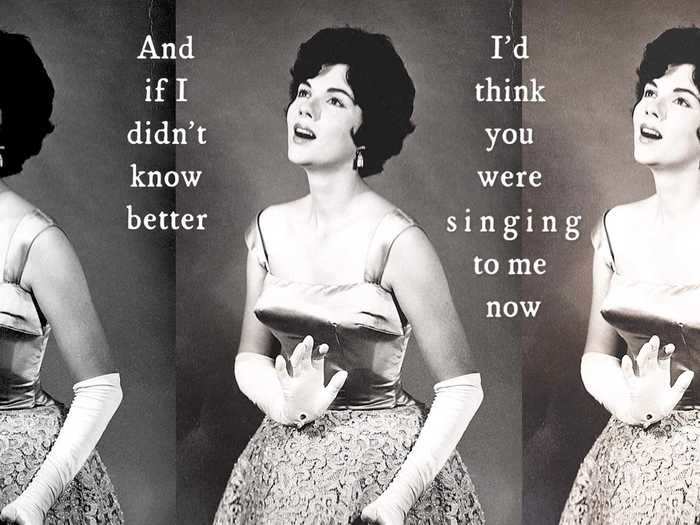
Ahlgrim: In the grand tradition of "The Best Day" and "Soon You'll Get Better," "Marjorie" is an ode to matrilineality and familial love.
Swift paints a strong and deeply affectionate portrait of her late grandmother Marjorie — and, as always, her lyrics are disarmingly sincere.
The minimal, gentle orchestration seems to reflect the elegance of its subject, with Justin Vernon providing rich harmonies.
But of course, because this is Swift, there's a sob-inducing final blow. Marjorie Finlay is also credited with backing vocals, a brilliant literalization of the song's thesis that nothing so well-loved can truly disappear — as well as the original thesis of "Folklore," as described on "Seven." "Passed down like folk songs, the love lasts so long."
Larocca: "Marjorie" is a sweet ode to Swift's grandmother Marjorie Finlay that's made all the more touching by featuring backing vocals from the late opera singer.
It's a quiet moment on the album that speaks to the lasting power loved ones can have on us after they're gone; how we can still hear their advice in our heads saying, "Never be so kind, you forget to be clever / Never be so clever, you forget to be kind."
The robotic production on "Closure" didn't do Swift's lyrics justice.
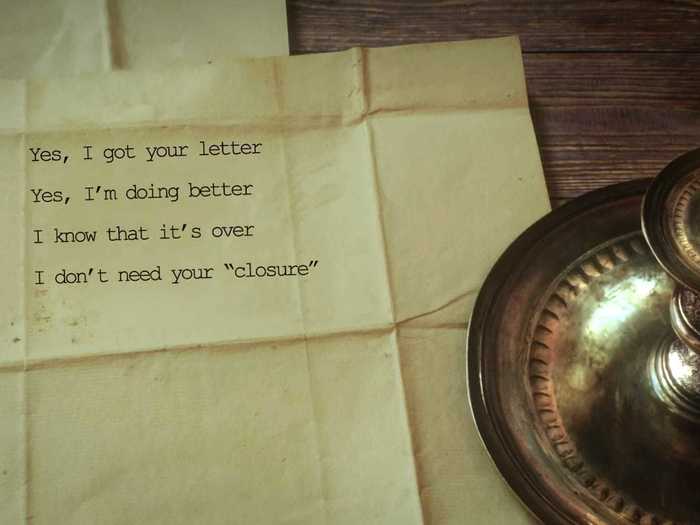
Ahlgrim: "Closure" has a few lyrical gems, like "Don't treat me like / Some situation that needs to be handled."
But thanks to the song's robotic vibe, it can feel repetitive and slightly phoned-in, like "I Forgot That You Existed" without the scene-setting charm. The stuttering, tinny beat isn't doing Swift any favors.
Larocca: Swift may not need closure, but I don't need whatever hellscape production she and her collaborators dug out of Matty Healy's trashcan and slapped on this track.
The lyrics are a high point, but they aren't the focus here — and that's unfortunate, because "I'm fine with my spite / And my tears, and my beers, and my candles" might be my favorite line on the entire album.
Hopefully Swift decides to do another "Long Pond Studio Sessions" version of "Evermore" to give her words a better life.
"Evermore," featuring Bon Iver, confronts darkness and emerges hopeful.
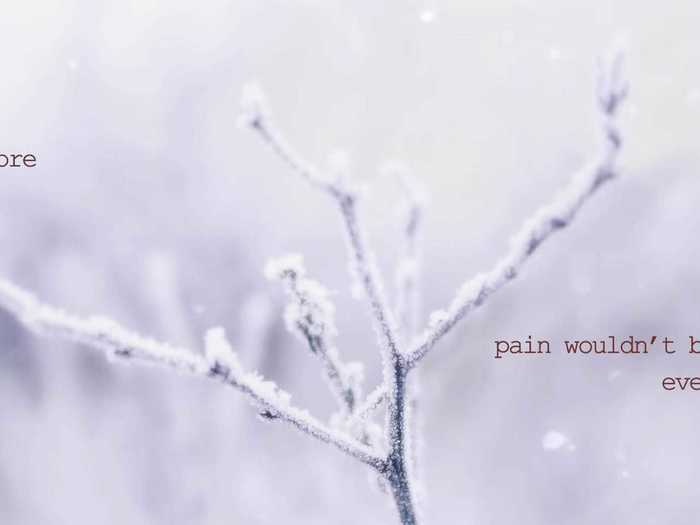
Ahlgrim: If I were asked to choose between Swift's two Bon Iver features, I'd definitely go with "Exile." Though I was pleasantly rattled by the sudden tempo shifts in "Evermore," so that certainly added some texture and intrigue.
I know this may have been written about Swift's fall from public grace and her dark year that followed, or it may not be autobiographical at all. But I'm going to take this song as quarantine canon. The description of months blurring together and feeling unmoored in time feel woefully relevant right now — so I appreciate that she ends the song on a hopeful note.
It's all very "this too shall pass," and as we venture deeper into a quarantine winter, I really need to believe that.
Larocca: Where Swift usually stands at the top of her summit alone at the end of her albums, "Evermore" ends with a Bon Iver duet — and, if you're paying acute attention to the TSDU, that's actually the album's biggest victory (despite how jarring his entrance is on the track itself).
While discussing "Folklore," on Disney Plus' "Long Pond Studio Sessions," Swift explained how "Exile" was cowritten by her boyfriend, and how Justin Vernon was brought in to sort of mimic the lines Alwyn had come up with.
Here, Vernon takes Alwyn's place again (the three of them wrote this one together) as a musical answer to one of Swift's most poignant moments in her "Miss Americana" documentary.
"I remember thinking afterward, oh my god, that is all you wanted. That is all you wanted, that is all you focused on. You get to the top of the mountain top and you look around and you're like, 'oh god, what now?'" she said about winning album of the year for "1989" at the Grammys.
She continued: "I didn't have a partner that I climbed it with that I could high five. I didn't have anyone to talk to that I could relate to. I had my mom. But I wondered, shouldn't I have someone that I can call right now?"
Here, on "Evermore," whether she's reached her peak or her lowest point, she'll always come to the realization that her pain won't be forevermore because she has her beloved by her side — and that's enough to save her, every time.
Final Grade: 9/10

Ahlgrim: Somehow, after writing the least autobiographical music of her career this year, I feel closer to understanding Taylor Swift than ever.
No one could write such evocative mini-dramas without profound, cavernous stores of empathy — or, I believe, without routine existential crises that shake you alive like espresso.
These songs and their stories, their imagined ruptures and nebulous regrets, only resonate because the core emotions are honest. It's like Swift wakes up every morning and wonders, "What do I do with all the bits of myself that aren't quite solid? How do I learn to love all these phantoms and egos?"
The answer, it seems, was to give them backstories, let them breathe in their own little worlds, and write them into existence: the recent graduate who didn't feel ready and had to break someone's heart; the young girl who wants to pry open her boyfriend's ribcage and live inside his chest; the best friend who'd kill to avenge her loved ones; the married woman who's having an affair she doesn't quite regret, wracked with intermingled awe and dread.
These things didn't happen to Swift, but these terrors and passions and impulses are real.
This is true for both albums, but "Evermore" ventured even deeper into myth and whimsy than "Folklore" did. It feels more adventurous and daring, almost grandiose, both lyrically and sonically.
The orchestral arrangements and electric guitars even sound galactic at times — clouds of turquoise and purple, streaked with inky black and freckled with gold. Songs like "Gold Rush," "Dorothea," and "Ivy" glint and gleam like stars.
However, the risk that comes with venturing deeper is getting lost — or at least losing clarity and focus. Indeed, after "Ivy," this album begins to meander. The final five songs, save for "Marjorie," could have been trimmed or even cut altogether.
I mean, at least someone was productive during quarantine. Creating two 17-track albums (including bonus tracks) in the span of eight months is quite an achievement. And they're both extraordinary. I understand wanting to flaunt it.
The textural risks taken with "Evermore" also make sequential sense, especially give Aaron Dessner and Bon Iver's enlarged presence in the credits.
More than anything, I'll always be grateful that Swift let us stay in this fantastical era a little longer, and gave us even more to explore. "Evermore" isn't a perfect album, but hey, they can't all be "Folklore."
Larocca: The genius of "Evermore" isn't as readily apparent as it was with "Folklore," because, at first glance, it's unrecognizable as A Taylor Swift Album.
Yes, "Folklore" experimented with storytelling from new perspectives, but there was a current of Swift's own perspective weaved throughout the tracks. On "Evermore," she ventures further outside herself, and it's almost destabilizing to look around and not see her familiar presence embedded in the narrative.
But tucked in among the new production risks and elaborate fictional folktales is yet another marvel of an album in Swift's now-rapidly growing collection.
"No Body, No Crime," which Swift wrote on her own, further cements her as one of the most prolific songwriters of her generation. "Gold Rush" is a twinkling head rush. "Tolerate It" wields an emotional dagger so swiftly, you don't even notice she split you open with it until you're a crumpled up piece of paper lying on the ground wondering how you got there in the first place.
It's certainly a worthy companion to "Folklore," but the later tracks needed more consideration ("Happiness" was only written last week, and she was timing the release to her birthday on Sunday — that time crunch is definitely felt here).
"Cowboy Like Me" drones on too long, and the glitchiness on "Closure" makes it difficult to stomach. "Happiness" and "Ivy" should've swapped places, and Vernon should've been introduced into "Evermore" more seamlessly.
Had she made these edits, I probably wouldn't have spent the last leg of the album asking myself, "Are we out of the woods yet?" (The answer, of course, is no. There are two deluxe tracks we have yet to hear.)
Overall these are minor qualms with an overall exemplary result, though.
No one needed Swift to follow up the best album of her career with a worthy second act quite so soon — hell, she gave us more albums than the US government gave us stimulus checks this year — but I certainly won't be the one to tell her to pack up her best colors and stop painting these expansive, glorious portraits of love, loss, nostalgia and hurt.
Even if she is making the rest of us look bad with her unparalleled levels of productivity.
Worth listening to:
"Willow"
"Champagne Problems"
"Gold Rush"
"'Tis the Damn Season"
"Tolerate It"
"No Body, No Crime"
"Happiness"
"Dorothea"
"Coney Island"
"Ivy"
"Long Story Short"
"Marjorie"
"Evermore"
Background music:
N/A
Split decision:
"Closure"
Press skip:
"Cowboy Like Me"
*Final album score based on songs per category (1 point for "Worth listening to," .5 for "Background music," .5 for "Split decision," 0 for "Press skip").
READ MORE ARTICLES ON
Popular Right Now
Popular Keywords
Advertisement